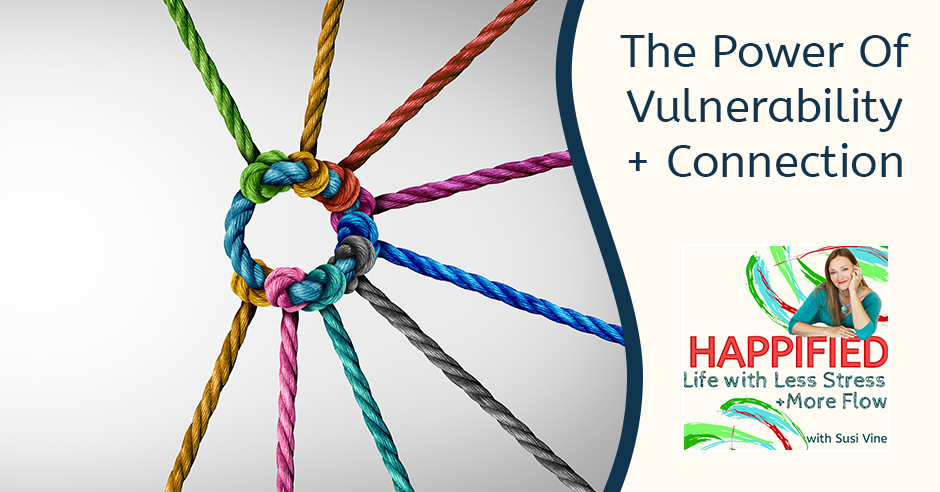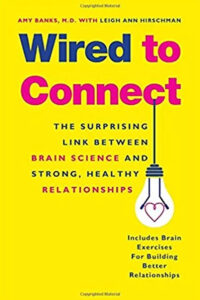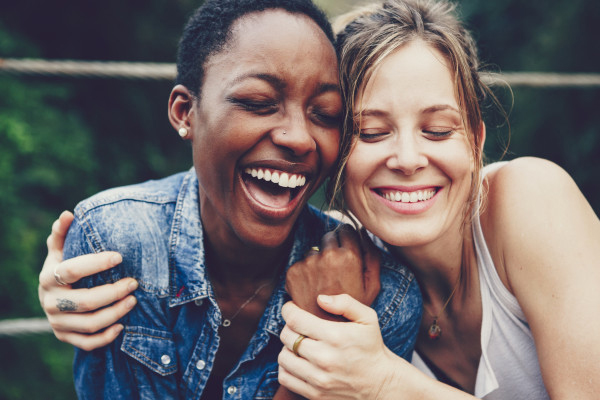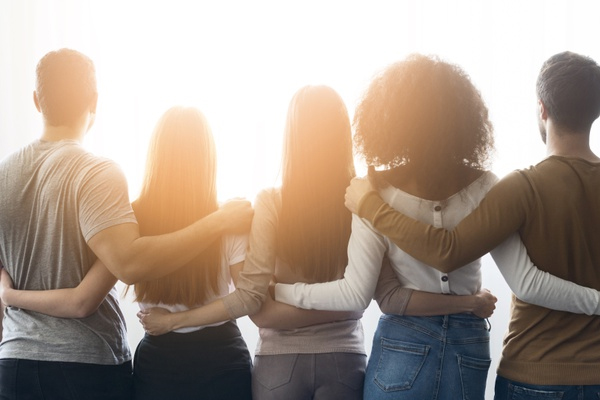
The relationships we’re in usually eat most of ourselves in more ways than one, especially in times of conflict and challenges. To avoid severing these ties and making disagreements even more serious, holding space for others is extremely needed. Susi Vine interviews Shiva Avtar, a human growth facilitator and Kundalini Yogi teacher, to discuss:
- Learning from personal experience, both our own and those we are raised with
- How vulnerability and creating a safe space facilitate healthy connections
- How holding space for people we love sometimes means sending them to time out, or taking our own
- The power of staying present and curious in times of intensity
- People pleasers + conflict avoidance skills that may be holding us back
- Planting seeds of compassion and love (so we can reap the rewards when needed)
- How a Daily Ritual for yourself can help boost connection with your partner
- The power of perspective, because it’s really not all about you
Follow Shiva on IG @sagesomatic
Watch the episode here:
The Power Of Vulnerability + Connection
In this conversation with Shiva Avtar, two people-pleasers take a look at showing up in relationships with openness + vulnerability. We talk about holding space for other people when they need it (so we trust that they’ll do the same for us) and the power of staying present with the people we love as well as our own emotions.
I am talking with Shiva Avtar, a human growth facilitator and passionate student of Optimal Relationships, as well as a Kundalini yoga teacher located in the Boulder Colorado area. We are going to be talking about being present, vulnerable and authentic in relationships. This is a conversation that was recorded when I did a little intensive session available for my community called the Reset Stress To De-Stress. There are many wonderful treasures in this conversation. I had to bring it out of the archives and make it available to you. We’re going to be talking about how healthy relationships come from vulnerability and creating a safe space, and how powerful it is to be able to hold space for each other in conflict. I hope you enjoy this conversation.
—
I’m happy to have with me for our interview Shiva Avtar, who is a human growth facilitator and yoga teacher. The reason that I wanted to connect with Shiva and bring his insights and wisdom here is because he’s passionate about fostering a healthy relationship with ourselves and interpersonally in all of the relationships that we cultivate. I’m excited to see where this conversation leads us. Thank you for joining us.
I’m excited too. Thank you, Susi. I’m happy to be here.
As human beings, we are hard-wired for connection. Share on XI know in the conversations as we’ve known each other, our passion arises from personal experience. In the work that you do and the growth that you’ve experienced, what is it about relationship that makes you want to share this with everybody? What are these insights that are just brimming?
The first thing that comes up for me is the pain of being in a relationship and feeling lost, limited or confused by not having any real practical tools to use. I spent years in a marriage that we both cared for each other deeply. We were better friends than we were significant others. It wasn’t for lack of desire or lack of trying. From my end of the relationship, I was confused. I’ve watched my parents in their relationship and had a lot of tortured messages, watching them struggle and eventually divorce. I was repeating a lot of their same issues in my marriage as an adult. Pain is my number one motivator. I don’t want anyone else to suffer needlessly. On the other end of that spectrum, knowing the possibilities in connection. That excites me. I’ve felt it. I’ve danced around it. Knowing that we are hard wired for connection as human beings. What that brings up for me is endless possibilities of what we can do when we’re in those relationships that resonate, that are about growth and development. It’s a beautiful place to come from.

Personally, having not been married for a long time compared to some standards. I married my husband a few years ago. I know through my own process of growing and self-examination, it’s influenced the way that the two of us communicate. It’s been helpful. As much as we are a product of what we grow up seeing and what is modeled for us and sometimes we reactionary say, “I won’t be that.” By having that, “I’m not going to go there,” we’re still putting that illustration in our story instead of getting to the root of why doesn’t that work? Why isn’t that successful? It’s helpful to get perspective and to keep checking back in. How do you see relationship? It’s not only in romantic relationships but it’s all the interpersonal connections that we have. How do you think we can foster healthier connection?
The biggest takeaway for me has been around vulnerability, whether it’s an intimate relationship, child- parent, business with clients, fellow employees, or any relationship. Realizing that when I lower my shield or take a wall down around who I am, share some part of me or come to a relationship leading with vulnerability, that can change the outcome of things. I don’t personally have children but watching other people who have children who come to them with vulnerability and not hierarchical thinking, that is where we’re changing as a species. For me, vulnerability and the teachings of Brené Brown and her research on vulnerability has helped me in my relationships, and seeing other people for who they are but also what they’re dealing with.
When we approach each other when we can, it doesn’t have to be a big deal. It can be as easy as saying, “Susi, when you said this, I felt this way,” having those I-statements not shaming or blaming people. That can work on any relationship. When I share something that’s vulnerable about myself with you, then that’s giving you a space to be vulnerable with me. At the very least you can see me in a little softer way. Not that you don’t. If we’re having conflict, there’s no way out of it. It’s not if, it’s when. Conflicts will come up in all relationships. How are we going to approach them? Vulnerability, being open about what we’re experiencing as hard as it is. For a lot of us, we don’t even know what that means.
For the people in your workshop, I highly recommend any book by Brené Brown. She talks about things like staying in the fire when the things are hot, not in a combatant way. When we’re in discomfort, in a conflict, or in a situation with another person, know that on the other side of that conflict is something soft, beautiful, and something we can grow together. It takes two people in conflict. I didn’t mean to go into conflict but that’s where we are. That seems to be the biggest thing that hurts our relationships is when two people can’t see eye-to-eye. When we can stick in the discomfort, we’re building the resiliency of connection. That’s not easy to do. It’s challenging but super rewarding.
The biggest thing that hurts relationships is when two people can't see eye-to-eye. Share on XWhat comes to my mind is a parent-child relationship. The parent is the more resourced one. They can hold space for their children when they’re struggling. As weird as this might sound, when we’re in other relationships, we often can find ourselves in a parenting role, not in a codependent way but in a way like if you and I are in a conflict and you’re spun out and blown out and I’m not as much, then I need to hold space for you. Maybe we need a timeout and I need to approach you. “Susi, I can see you’re having a hard time now. How about we talk in an hour?” When we step away from that and our nervous systems turn down, then we can come back in an hour because we care about each other. That’s what this is about. It’s not about shame or blame. It’s about what do we need to do to resolve this conflict. It might not get resolved exactly the way we want it to be in the next hour, but when we start planting those kinds of seeds where we’re coming to things in a conscious heart-centered way, what can come out of that is amazing.
I love that you’re bringing up the points of staying present. That’s definitely something I’ve been touching back to and being curious as well. You can do that in relationship, even in these difficult conversations. If you can catch that opportunity to pause and be curious, “Why are they so triggered? How can I help us come back to the conversation?” Anything to keep that engagement because reflexively and being Midwestern where stoicism was prized, we tend to withdraw like, “This is getting challenging. This is getting confrontational. I’m going to shut down because I can’t go where this seems to be moving.” It’s a beautiful point that you’re making that the fire isn’t about getting burned. It’s about staying in that test and staying present so that you can stay open and get the lessons that are coming from this instead of missing that opportunity, and having to start from even further back next time you find yourself in that similar situation.
I’m someone who’s conflict avoidant. The fact that I can look back 10, 15 years at the way I was navigating my life and hiding from any form of conflict, and knowing that that was hurting me the whole time. For a lot of us, we’re people pleasers as well. We might have this fantasy that if I tiptoe around everything, I can avoid conflict and make other people happy. That was a fantasy of mine. I tried to make it work and it never works. I wound up being miserable from it and not connecting on an authentic level with people. When I was talking about pain, that was part of the pain. I wasn’t connected to myself and that prevented me from connecting with other people too.

We’re all going to bring some baggage to our relationships. It’s about stepping away from that, wandering, and trying to figure out, what do I want in my life? The people I care about, how do I want them to see me or even feel me on a relationship level? We’re hard wired for connection. One of the teachers of that is named Stan Tatkin. His book is called Wired for Connection. It’s a beautiful book. I highly recommend that for the people you’re working with as well. That book helped me a lot. One more thing that comes to mind is that when we are feeling the discomfort in those moments, another thing is happening for us. Maybe for some of us, we can relate to. When things get rocky in a conversation and suddenly, we can’t even connect our thoughts, a lot of times we’re going into this neurology where our brain is going into the fight-or-flight mode.
When we’re triggered like that, we’re not going to be able to make any headway. That’s where those timeouts come in super handy. It’s takes practice. The only way to learn this is to go through it. It’s having the ability, the capability to let someone else know. Even if it’s your child, “I love you. I just can’t do this with you now. I’m going to be back. I’m going to go take a break.” If it’s your child, your partner, even a coworker or a client, that’s that vulnerability I’m talking about. Letting other people know what’s going on for you in a given moment.
It is challenging. That feels empowering in your example. If you’re talking with a child and you realize you’re reaching that threshold, you’re able to take that pause and say, “I need a timeout. We’re going to come back to this because I want to be able to communicate with you.” How powerful is that for a child to see, “It’s not just about me being put in timeout.” It’s not a punishment. It is a way to make space, to think, to pause. That totally transforms that into a tool instead of a punishment. I know I need to take some time out.
We're all going to bring some baggage to our relationships. It all comes down to how we step away from them. Share on XWe all do. We’re in this together.
That’s something that I’ve been trying to illustrate. To your point, it takes practice. We can’t put these tools into use for the first time or the third time when we’re in the fire. You have to be practicing that vulnerability, taking that pause, and being curious about why your feelings are being stirred up before we’re in the heat of a situation, where we are kicked back into that amygdala. Whatever habits and anything we’ve been cultivating, we have to work to bring ourselves back into that because we’re wired to react in moments of stress like that.
We can lay the groundwork for those moments where we can take the timeouts. One of the ways to lay the groundwork is letting those people in your life know how much you appreciate them in those times when you aren’t triggered but you’re present. You can tell them something real about, “Here’s one thing I love about you.” Plant those seeds of compassion, connection and love. When I’m triggered, that can be in the background as well. I know this person loves me. The other person can be saying if I’m spun out, “I know he loves me. Something’s going on for him.” Maybe they can be resourced in that moment because they know how much I love him but I have to plant those seeds months and years ago.
For an intimate couple, a partnership, a good way to lay some groundwork when these other uncomfortable moments come is to have a daily ritual. Maybe that’s first thing in the morning when they’re having tea or coffee together, spending 5, 10, 15 minutes together, connecting, and being present with each other or maybe it’s at the end of the day. They can share their day together. Having that priority time of a ritual. No one else gets that time except you and me. That could be a parent and child too, especially when we’re staying at home. We’re in each other’s space and we’re not used to that. This might be a good time to start those rituals. In that way, when I’ve taken time to connect with you, we’ve done our ritual.

I can connect with myself in my ritual, whatever that is, meditating, yoga, taking the dog on a walk. We all need our time individually but also collectively. That’s building the interdependency as well where we can come together, connect, and then go apart. That builds a desire, “I want to come back together later and connect again.” We’re in relationship. We’re out of it. We’re still connected. We still know I’m safe with that person. If I’m spun out, I know they’re going to soothe me. I know they’ll support me. I feel seen with them. Those four S’s, say, seen, soothe, and supported. That’s a big game changer. I learned that one from a guy named Jayson Gaddis. I studied with him. The school is called The Relationship School. I’m plugging them but I don’t get anything from them. This is a personal thing that helps me advance a lot in relationship skills.
It’s important to recognize too that it is something to continue coming back to, to continue looking at what can we improve. How can we make this better? I can’t tell you how many times I’m watching TV or I’m reading a book. You see the crisis form because people aren’t communicating. It’s not even a conversation that shouldn’t happen or can’t happen but to build that dramatic tension, this is withheld. In life, that’s so much the case too. Life can be stranger than fiction. Those little things that we feel like it doesn’t matter, this person can’t handle that, or I’ll protect them by being the stronger person. I don’t need to put that on them. As you said before, you’re not giving them the opportunity to know you completely and to accept you on all levels, which is so much more powerful.
We all have our warts and ugly parts. We might even judge as being ugly. Those are the things that make us human, those quirks. Let’s face it. We’re all irritating on some level. If I had to spend eight hours with me, I’d find something that was irritating about me. Realizing those things and letting go of any fantasy that the media has presented around what a relationship should look like. We’re human beings. There’s going to be ugly things and that’s okay. We can accept the shadow side and the light side. None of us are perfect. We all come from families that have their own baggage as well. When I’m in a relationship with someone, hopefully I can realize too. If someone’s acting out, I don’t know why. They might not even know why either. Having some compassion for people too is a good place to come from.
We all use that now and moving forward. That’s what I hope we can take out of this experience, this pause that we’ve been placed in, is building some of these practices, this foundation that can continue to serve us moving forward that maybe we’ve never made the time or created this space before. Even though it might feel more hectic if you’re working from home. I hear people are working in the US an average of three hours more a day if they’re working from home. Their employers might be putting stress on them. Being present, carving out that time for self, and respecting your own needs is so important so that we can grow from this.
We're human beings. There are going to be ugly things, and that's okay. Share on XI’m a firm believer that nothing is a coincidence. The people that come into our lives are there to help us grow. If it’s an intimate relationship, usually we’ve attracted that person into our life to help us heal some old childhood wounds. All of us carry around this inner child. Working with you, Susi, with the plant essences, you address that in your work in many different ways as well. All of us would do well to tap into that inner child. That’s a whole another interview, I’m sure. I think about that a lot, especially when someone else in front of me is not being kind or not being compassionate. I’m trying to stay open to, “This has nothing to do with me.”
That’s good tool to keep in mind too in our toolbox of relationship skills. Most of the time, I should not be taking anything someone else does personally, even though I want to. Many times, I do and that never benefits me in the long run. We’re talking about elevated thinking often here and self-actualization, big things. We take it a step at a time each day, try to do better, try to love more, try to be present more. It’s doable. This is a lifelong process we’re talking about. It’s so worth it. I’m so much happier than I was years ago because I try to do these things each day that I’m speaking them. Some days I do good and some days I don’t, but I don’t judge myself. I get up the next day and try my best.
We could go on all day. We might have to do another series where we can go deeper into some other topics. I want to thank you for your time, making yourself available, and sharing these brilliant insights. I think there are many different things that people can take from this. As I’ve said with other resources, you can come back to it another time, listen to it, and find another completely different thing. It didn’t speak to you the first time but it’s what you need now. I love having this available so people can take what they need and what’s going to serve them.
It’s my joy. I’m so stoked to be a part of this with you.
Thank you so much. I look forward to more collaboration.
Me too, Susi. Thank you.
Thank you.
Important Links:
- Shiva Avtar – Instagram
